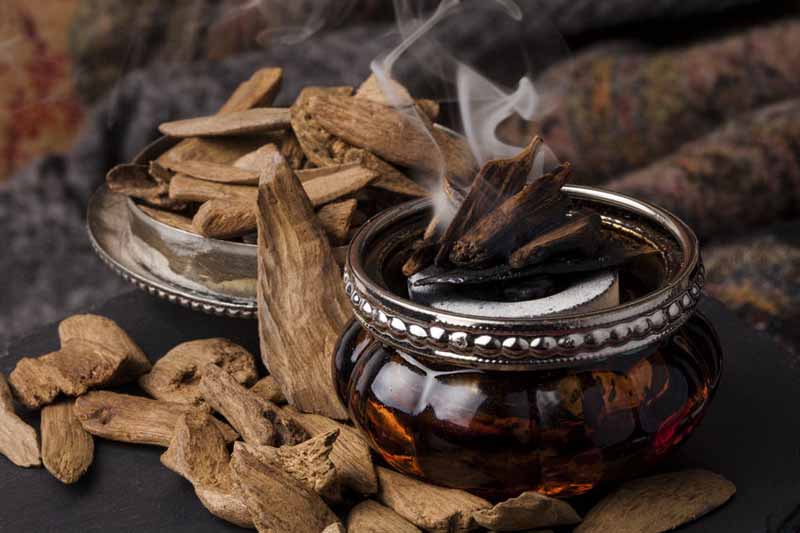
Scent is so much of human experience. Matthew Mileó shares some thoughts on scents to make people fall in love with your spa.
Scent is a big part of the spa customer experience. The right scent can relax, rejuvenate, inspire joy, and evoke memory. The wrong ones, or even the right ones wrongly employed, can have the opposite effect.
Have you ever felt sick from being in close quarters with someone wearing too much fragrance? You probably have. This is why it’s so important for spa and wellness businesses to strike the right balance and be aware of which scents may elicit which reactions when used in what settings.
Knowing that scent is connected to psychological reactions and effects, we asked how it can be used to enhance the guest experience. Can we tweak the scent environment to arouse positive emotions? And, in the spirit of Valentine’s Day, are there scents to make people fall in love, or at least awaken emotions connected to love and affection? We asked Matthew Miléo, the founder of Miléo New York, these questions. Miléo is a 100% botanical skincare line, known for its award-winning Elixir Oud collection. Miléo is also a wellness advisor, and former in-house beauty and fragrance expert at Chanel.
Here’s what he had to say about the scents that may elicit feelings of love and affection, and about creating the ideal spa atmosphere:
 Can you talk about how scent works on the brain and nervous system to elicit emotional reactions?
Can you talk about how scent works on the brain and nervous system to elicit emotional reactions?
It’s well documented that smells and scents can affect the human brain. I spent two years researching mood and emotion disorders in a psychobiology research laboratory, and I was fascinated by how smells can evoke strong emotional reactions. Our olfactory receptors, which translate smell to our brain, are directly connected to the limbic system, which is where our emotions, feelings, and mood all stem from. The olfactory bulb is close to the memory hub of the brain, and it has been hypothesized that smells trigger memory. This explains why our smell is attached to a memory, and can be retriggered. It also explains why certain aromas and odors can be perceived differently, and why people from different cultures can have significantly different reactions to smelling the same thing.
This kind of olfactory perception is why fragrance and aroma will always be subjective to the person smelling it, and thus thousands upon millions of different aromatic compositions exist.
Can we talk more about scent’s effect on mood?
The effect on mood can be learned by association from past experience, but certain types of scents are known to be associated with a physiological response that may help to lower blood pressure, muscle tension, and brain activity. Notes of tuberose, gardenia, ylang ylang, jasmine, and magnolia flowers all help to relax the body and create feelings of comfort, to which the brain translates as euphoric, joyous, happy, and peaceful.
Certain emotions can be guided by an arrangement of notes that ultimately transcribe to your brain which emotion is most likely to arise.
Are there scents that evoke feelings like love and affection? What are these?
Feelings of love and emotion are inspired by Rose, Jasmine, White Ginger Lily, Violet, and Mimosa flowers, which represent the innocence and devotion of love.
The rich, sparkling middle note of rose complements the powdery notes of mimosa, violet and jasmine, and the ethereally sweet white ginger lily. Deeper, more primal emotions like obsession and infatuation are captivated by Sandalwood, Ylang Ylang, Vanilla, Narcissus and Orange Blossom, which capture the animalistic and sensuous emotions they exude.
Cozy, sweet vanilla assail our nostrils with mystical sandalwood that complements the tropical sweetness of ylang ylang and the exotic floral of orange blossom.
If a spa wants to create an atmosphere that is welcoming and relaxing, what are some scents that can help with this?
Woods are best used for an ideal spa atmosphere. There is a centuries-old history of using woods for meditative and spiritual practices.
Agarwood, the heartwood of which is Oud, was used in spiritual ceremonies to transcend the mind into a religious state of consciousness. Sandalwood’s essential use is as incense in spiritual practices, and other known woods like Cedar, Cypress, and Siam Wood have relayed their own meditative benefits. If we are to think of a spa as an altar for the body to rest upon, then using a woodsy scent is the best catalyst for that purpose.
Using a relaxing woody base, a spa may want to enhance it’s scent with flowers, citrus, or other earthy notes to give the atmosphere a unique aromatic composition. Citrus and mints like yuzu, yellow mandarin, and peppermint will energize, freshen, and invigorate the spa’s feeling of vitality.
Florals like lotus, ylang ylang, and magnolia will soothe emotions and entice feelings of self-care. Spice notes like saffron, cinnamon, and ginger will add a gourmand aroma that flavors the spa ambiance with liveliness.
Resinous notes like frankincense, rock rose, and amber will create a sense of peace and comfort. And green or herbaceous notes like neroli, violet leaf, and jasmine make a sophisticated spa even more chic.
The main component is a strong wood base, as that is your aromatic anchor to creating a blissful experience.
Related:
Next Generation Aromatherapy: how research & tech are changing the game
 Check out the spa & wellness trends we’re keeping our eye on in 2020. Sign up for Spa Executive’s newsletter and download the free report! CLICK HERE >>
Check out the spa & wellness trends we’re keeping our eye on in 2020. Sign up for Spa Executive’s newsletter and download the free report! CLICK HERE >>
Spa Executive magazine is published by Book4Time, the world’s most innovative spa, salon, wellness, and activity management software. Learn more at Book4Time.com.



